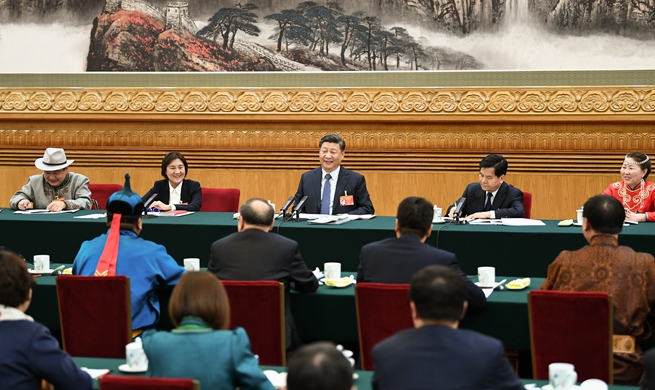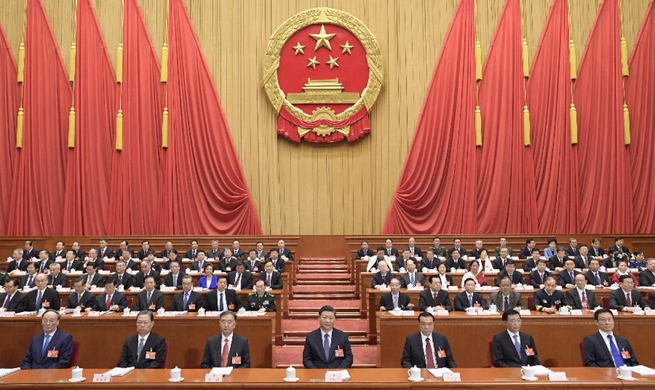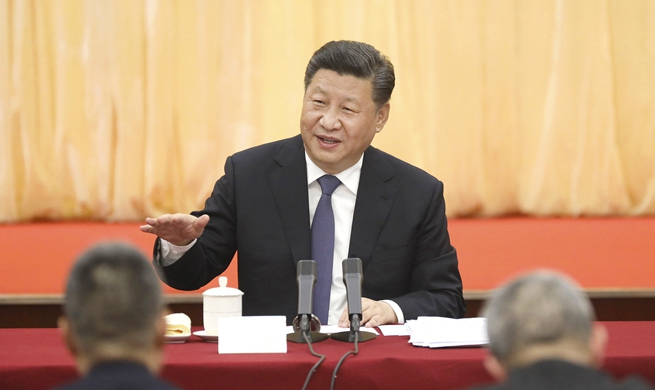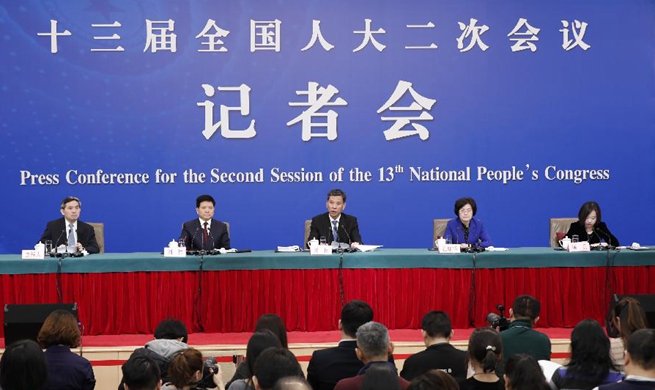BEIJING, March 6 (Xinhua) -- If Chinese consumers tightened their belts, the world would feel the squeeze.
As the world's second-largest economy, China posted a 6.6 percent growth last year, and it has set its GDP growth target at 6-6.5 percent for 2019. There has been concerns that the downward pressure on the economy might lead to weakening consumer spending in the country, but a closer look will prove such worries unnecessary.
The contribution of final consumption expenditure to China's economic growth rose to 76.2 percent in 2018, up 18.6 percentage points from the previous year. Consumption has been the primary driver of China's economic growth for several years.
Besides, the Chinese government is sparing no efforts to unlock the potential of domestic demand to shore up the consumption growth.
The country will take a combination of measures this year to increase urban and rural personal incomes and boost capacity for consumption, says a government work report unveiled Tuesday at the annual legislative session.
Significant steps will be taken to develop elderly care, as the number of people in China aged 60 and above has reached 250 million. Various types of infant and child care services will be developed. Tourism industry will be strengthened and steady automobile consumption will also be maintained, according to the report.
Such moves to foster a bigger consumer market only add to the resilience, vibrancy and growth momentum of China's economy. They also send encouraging signals to the world as the global economy is fraught with challenges like protectionism and anti-globalization.
Now China is home to the world's biggest middle-income group comprised of some 400 million people, and the number is still on the rise. It is also evolving from the world's workshop to a major consumer of goods and services. Last year, it bought 2.14 trillion U.S. dollars worth of goods from other countries and regions.
More importantly, groups of dynamic forces are emerging -- the nation's Generation Z, small-town and rural dwellers.
Their growing demand for a better life and high-quality goods will create new business opportunities.
Japanese cosmetics manufacturer Shiseido Co. posted an 8.9 percent rise in 2018 sales. A growing market for the company, China accounted for 17.4 percent of its overall sales.
This trend is hardly exclusive to Shiseido. China's huge domestic market has become a magnet for an increasing number of international enterprises.
This is why electric carmaker Tesla decided to set up a plant in Shanghai, its first outside the United States, and why German carmaker BMW announced in October that it would increase its stake in the joint venture, BMW Brilliance Automotive in the northeastern city of Shenyang, from 50 to 75 percent.
China's imports are also rising at a fast pace as people's ardor for high-quality and diversified foreign goods continue to increase.
The first China International Import Expo (CIIE) was China's latest move to increase imports. So far, more than 500 companies from all over the world have confirmed participation in the second CIIE this year.
Huge population, growing new economic momentum, ongoing urbanization and rising spending power of residents all point to the development of a robust domestic market in China.
As the country keeps its promises to further relax controls over market access, shorten the negative list for foreign investment, and permit wholly foreign-funded enterprises to operate in more sectors, there is no doubt the Chinese market will have more potential to be unlocked.















